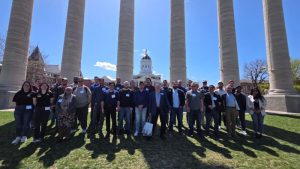
April 25, 2025
MU Microelectronics Training Program brings in industry professionals
Engineering professionals from Missouri attend the MU Microelectronics Training Program for skills development.
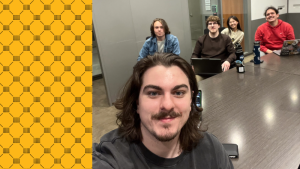
April 8, 2025
Jump into the TigerVerse
Discover the world of programming in immersive environments at Mizzou’s extended reality hackathon.
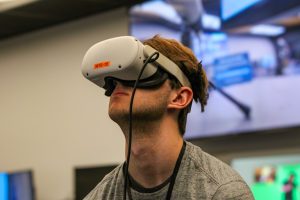
Nov. 20, 2024
Microelectronics Training Boot Camp
On Saturday, Nov. 16, engineering students engaged in a hands-on training to learn more about microelectronics at Mizzou.
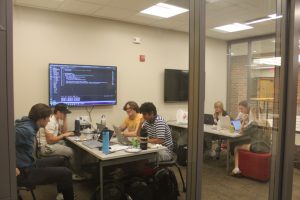
Oct. 30, 2024
TigerHacks returns in 2024 for its Food and Agriculture era
This weekend, Mizzou Engineering will be packed with future computer programmers around the clock for TigerHacks, the largest student-run hackathon in Missouri. Computer science students Matt Marlow, Elise Fidler, Stella Craig and Jessica Xie sat down for an interview about TigerHacks 2024.
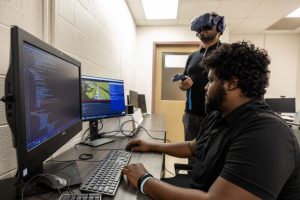
Sep. 18, 2024
Protecting health and privacy in virtual reality
Mixed reality research by Mizzou Engineer Khaza Anuarul Hoque’s team was recently accepted for the IEEE International Symposium on Mixed and Augmented Reality — a flagship VR conference.
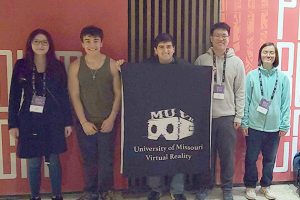
Feb. 12, 2024
Computer science, IT students participate in MIT Reality Hack
Mizzou Engineering’s Shane McKelvey and his team earned a first-place award at MIT’s Reality Hack in January for their development of a novel treatment that uses virtual reality (VR) to help young patients undergo electro-stimulation therapy.
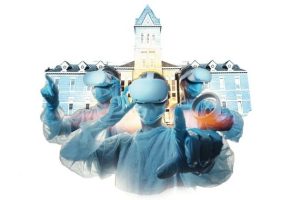
Jan. 16, 2024
MUVR: shaping tomorrow’s innovators
MU students are harnessing the virtual to train for reality. Austin Barr is working with his fellow IT and computer science majors to raise awareness of the University of Missouri’s Virtual Reality Organization (MUVR) across campus and open the club and the Collaborative Research Environments for Extended Reality (CREXR) Lab to students from all disciplines.
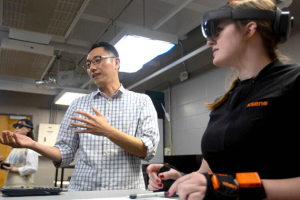
Jan. 12, 2024
Study finds correlation between metacognition and effectiveness of virtual instructors in remote classes
Augmented and virtual reality are changing the way universities can offer remote and online courses. These technologies allow for course materials to be presented to students in a more engaging and interactive way. However, right now, there’s a disconnect between the “wow” factor and what students actually learn using these technologies.
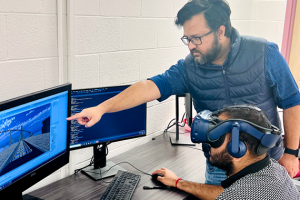
Nov. 15, 2023
Mizzou Engineer developing system to combat cybersickness experienced by soldiers using XR goggles
In theory, augmented and virtual reality are ideal tools to train soldiers for battle in safe, controlled settings. In reality, these extended reality (XR) goggles are causing all sorts of problems — headaches, nausea, eye strain and other forms of so-called cybersickness.
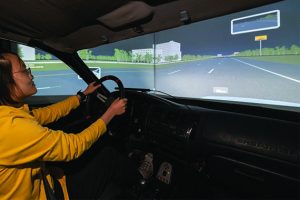
Sep. 7, 2023
Drivers, start your monitors: Inside the virtual world of the ZouSim Lab
Carlos Sun and his team have developed innovative vehicle technology becoming leaders in transportation.